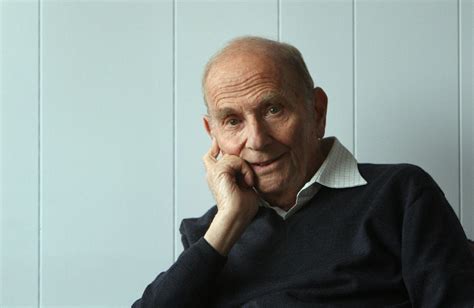A Quote by Noam Chomsky
Let's imagine again an observer looking at us without any preconceptions. I think he would be struck by the fact that although human beings have the capacity to develop scientific knowledge, it must be a very limited capacity because it is only done in very narrow and specific domains.
Related Quotes
Imagine an extrahuman observer looking at us. Such an extrahuman observer would be struck precisely by the uniformity of human languages, by the very slight variation from one language to another, and by the remarkable respects in which all languages are the same. And then he would notice we do not pay any attention to that because for the purpose of human life it is quite natural and appropriate just to take for granted everything that is common. We don't concern ourselves with that, all we worry about are differences.
Hire and promote first on the basis of integrity; second, motivation; third, capacity; fourth, understanding; fifth, knowledge; and last and least, experience. Without integrity, motivation is dangerous; without motivation, capacity is impotent; without capacity, understanding is limited; without understanding, knowledge is meaningless; without knowledge, experience is blind. Experience is easy to provide and quickly put to good use by people with all the other qualities.
People come to the theatre in search of a real encounter with other human beings, and we must give them what they come for. Our capacity to do that is the measure of being human. And if the price is that we sometimes say something not very pleasant - well, that's precisely why people want us, in the end: because we speak the truth.
We naturally assume that our mental structures are universal. But I suppose an outside biologist looking at us would see something very different. He would see that, like other organisms, we have a narrow sphere within which we are very good, but that sphere is very limited. And that, in fact, the very achievements we can have within that sphere are related to lack of achievements in other spheres.
As human beings, we aren't as individual as we'd like to believe we are. And I think that's what makes acting possible. Despite the fact that I have not experienced something, I have it in my human capacity to imagine it and to put myself in someone else's shoes, and to take someone else's circumstances personally.
It is an odd fact of evolution that we are the only species on Earth capable of creating science and philosophy. There easily could have been another species with some scientific talent, say that of the average human ten-year-old, but not as much as adult humans have; or one that is better than us at physics but worse at biology; or one that is better than us at everything. If there were such creatures all around us, I think we would be more willing to concede that human scientific intelligence might be limited in certain respects.
Many persons nowadays seem to think that any conclusion must be very scientific if the arguments in favor of it are derived from twitching of frogs' legs (especially if the frogs are decapitated) and that, on the other hand, any doctrine chiefly vouched for by the feelings of human beings (with heads on their shoulders) must be benighted and superstitious.



































